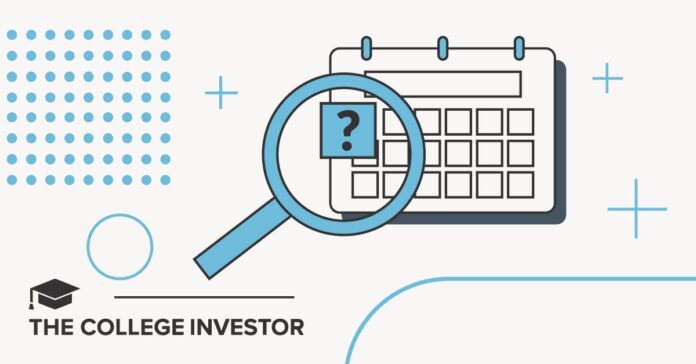Most students typically follow through with enrollment after deciding where they want to go to college. But that isn’t the case for everyone. Unexpected life events might disrupt your plans, or you might decide to take a gap year before beginning your college career.
Whatever the reason, you might be wondering if you can change your college decision after accepting an offer. Even though it’s frowned upon to change your decision, under some circumstances it might be necessary. If you’re thinking about changing your decision, evaluate your options and work with your school to follow their process for making the change.
How Can I Change My College Decision?
Depending on your situation, your school may have specific procedures that you’ll need to follow to defer or withdraw your decision. It’s important to follow their process because it can impact your financial aid package, ability to enroll elsewhere, and it allows the school to give your vacancy to a student on the waitlist.
Follow these general guidelines and work with your school closely to make sure you handle your decision responsibly.
Withdraw
Withdrawing your decision after you’ve been accepted means you no longer intend to enroll in that school. It’s important to do this as quickly as possible. If your school has a waitlist, they might be able to move someone up to take your place.
Contact admissions. Do this ASAP. Speak with someone in admissions directly and get the contact information of whomever you speak to in order to maintain an open line of communication. While an email technically works, it might get lost in their inbox. If you opt to send an email, make sure you follow up to keep things moving.
Let admissions know what’s going on. You’re not going to be the first or the last student to change your mind. Be honest about your situation. Talk to admissions and let them know why you’re withdrawing your acceptance. In some cases, like a family emergency, they may be able to offer you a better option that you may not have previously considered.
Be prepared to forfeit your deposit. Many schools require you to put down a deposit to secure your spot for enrollment in the upcoming semester. Depending on the timing of your withdrawal and your school’s policies, you might not be eligible for a refund of your deposit. This is something you may want to take into account before deciding to withdraw completely.
Defer
If you decide to defer your college acceptance – rather than withdraw it – you’re essentially saying you still want to attend the school, you just want to start at a later date. This is common and most schools have policies in place for students who wish to do this.
Inquire about your school’s deferral policy. Some schools may have a formal process you have to go through to approve your deferral. Call the admissions office and figure out the steps you need to take.
Submit all requested paperwork. Because you intend to enroll at a later date, the dean of your college, your academic advisor, and the financial aid office are all going to need to know what your admissions status is. Complete all required documentation and CC everyone who needs to be aware of your status.
Follow up with financial aid. Speaking of financial aid, it’s important that you work closely with someone in the financial aid office. Federal student loans are only available for a limited amount of time. If you plan to take a gap year during your first year and don’t tell anyone, you may inadvertently start the clock on your loan eligibility. Make sure financial aid has all the information they need – and you get copies of it.
Reasons Why You Might Change Your College Decision
Although most high school graduates go to college immediately, that isn’t the case for everyone. Life happens. You might decide that you’re not ready, would like to take an indirect route, or have family obligations to attend to. These are a few reasons why you might need to change your decision.
Postponing to Take a Gap Year
A gap year is common in Europe, and it’s slowly gaining traction in the United States. Thanks to recent shifts to remote learning, more students are taking gap years rather than sitting in on Zoom lectures.
Colleges are now starting to take gap years more seriously. Schools like Princeton and Tufts, for example, offer bridge year programs for students interested in volunteering abroad. Depending on your school, there may be a formal process in place for you to defer your admissions decision so that you can take a gap year.
Moved Off the Waitlist Somewhere Else
When you applied to college, you probably had a top school you really wanted to go to and a few backup schools in case you didn’t get in. If you are pulled off the waitlist at your dream school, you might find yourself in a position where you want to change your decision. This is common, and admissions offices expect some churn as students finalize their enrollment for the fall semester.
Family or Medical Crisis
Life happens and unfortunately, things don’t always go to plan. You might find yourself in a situation where you get an unexpected medical diagnosis or a family member suddenly dies. Under extenuating circumstances, it might make sense for you to change your college decision.
Related: How Tuition Insurance Can Protect Your Investment In College
Financial Reasons
College is expensive. The decision to attend an expensive school or take on debt shouldn’t be taken lightly. The sudden loss of income might mean you’re unable to pay your tuition. Or, you might get off the waitlist at a different school that offers a better financial aid package. If your financial situation changes, you may need to change your acceptance decision too.
Can I Still Change My Decision if I Applied Early Decision?
In some cases, it might be very difficult to change your college decision. Early Decision is a binding contract. While your school probably won’t sue you if you withdraw your decision, there could be consequences. For example, if the school you decide to go to instead discovers you backed out of an Early Decision agreement, they may withdraw their offer as well.
Under extreme circumstances, on a case-by-case basis, a school may decide to release you from an Early Decision agreement. In some cases, they might opt to work with you to defer your start date instead.
Does Changing My Decision Affect My Financial Aid Package?
Changing your admissions status could impact your financial aid offer. If you defer, your financial aid package might not defer with you. Depending on your school you could lose out on scholarships or grants that are part of your original offer.
The good news is you’ll be able to re-apply for financial aid, but don’t bank on getting the same offer twice. Evaluate how changing your decision will affect your financial aid package before taking any action.
Bottom Line
Going to college is a big commitment. Life happens and you may have to change your college decision. Evaluate your options and build a team at your school to help you. Even if you don’t end up attending, they’ll work with you to provide you the information you need and assist you in completing whatever paperwork needs to be submitted to formalize your decision.






